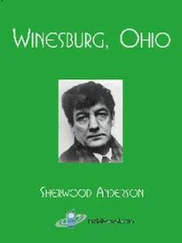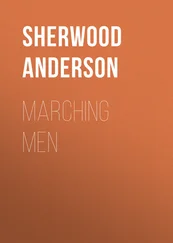Sherwood Anderson - Poor White
Здесь есть возможность читать онлайн «Sherwood Anderson - Poor White» — ознакомительный отрывок электронной книги совершенно бесплатно, а после прочтения отрывка купить полную версию. В некоторых случаях можно слушать аудио, скачать через торрент в формате fb2 и присутствует краткое содержание. Жанр: Альтернативная история, literature_20, foreign_antique, foreign_prose, Исторические приключения, на английском языке. Описание произведения, (предисловие) а так же отзывы посетителей доступны на портале библиотеки ЛибКат.
- Название:Poor White
- Автор:
- Жанр:
- Год:неизвестен
- ISBN:нет данных
- Рейтинг книги:3 / 5. Голосов: 1
-
Избранное:Добавить в избранное
- Отзывы:
-
Ваша оценка:
- 60
- 1
- 2
- 3
- 4
- 5
Poor White: краткое содержание, описание и аннотация
Предлагаем к чтению аннотацию, описание, краткое содержание или предисловие (зависит от того, что написал сам автор книги «Poor White»). Если вы не нашли необходимую информацию о книге — напишите в комментариях, мы постараемся отыскать её.
Poor White — читать онлайн ознакомительный отрывок
Ниже представлен текст книги, разбитый по страницам. Система сохранения места последней прочитанной страницы, позволяет с удобством читать онлайн бесплатно книгу «Poor White», без необходимости каждый раз заново искать на чём Вы остановились. Поставьте закладку, и сможете в любой момент перейти на страницу, на которой закончили чтение.
Интервал:
Закладка:
The truth is that the people of Mudcat Landing were totally unlike any of the people Sarah Shepard had ever known and unlike the people Hugh was to know during his mature life. He who had come from a people not smart was to live among smart energetic men and women and be called a big man by them without in the least understanding what they were talking about.
Practically all of the people of Hugh’s home town were of Southern origin. Living originally in a land where all physical labor was performed by slaves, they had come to have a deep aversion to physical labor. In the South their fathers, having no money to buy slaves of their own and being unwilling to compete with slave labor, had tried to live without labor. For the most part they lived in the mountains and the hill country of Kentucky and Tennessee, on land too poor and unproductive to be thought worth cultivating by their rich slave-owning neighbors of the valleys and plains. Their food was meager and of an enervating sameness and their bodies degenerate. Children grew up long and gaunt and yellow like badly nourished plants. Vague indefinite hungers took hold of them and they gave themselves over to dreams. The more energetic among them, sensing dimly the unfairness of their position in life, became vicious and dangerous. Feuds started among them and they killed each other to express their hatred of life. When, in the years preceding the Civil War, a few of them pushed north along the rivers and settled in Southern Indiana and Illinois and in Eastern Missouri and Arkansas, they seemed to have exhausted their energy in making the voyage and slipped quickly back into their old slothful way of life. Their impulse to emigrate did not carry them far and but a few of them ever reached the rich corn lands of central Indiana, Illinois or Iowa or the equally rich land back from the river in Missouri or Arkansas. In Southern Indiana and Illinois they were merged into the life about them and with the infusion of new blood they a little awoke. They have tempered the quality of the peoples of those regions, made them perhaps less harshly energetic than their forefathers, the pioneers. In many of the Missouri and Arkansas river towns they have changed but little. A visitor to these parts may see them there to-day, long, gaunt, and lazy, sleeping their lives away and awakening out of their stupor only at long intervals and at the call of hunger.
As for Hugh McVey, he stayed in his home town and among his own people for a year after the departure of the man and woman who had been father and mother to him, and then he also departed. All through the year he worked constantly to cure himself of the curse of indolence. When he awoke in the morning he did not dare lie in bed for a moment for fear indolence would overcome him and he would not be able to arise at all. Getting out of bed at once he dressed and went to the station. During the day there was not much work to be done and he walked for hours up and down the station platform. When he sat down he at once took up a book and put his mind to work. When the pages of the book became indistinct before his eyes and he felt within him the inclination to drift off into dreams, he again arose and walked up and down the platform. Having accepted the New England woman’s opinion of his own people and not wanting to associate with them, his life became utterly lonely and his loneliness also drove him to labor.
Something happened to him. Although his body would not and never did become active, his mind began suddenly to work with feverish eagerness. The vague thoughts and feelings that had always been a part of him but that had been indefinite, ill-defined things, like clouds floating far away in a hazy sky, began to grow definite. In the evening after his work was done and he had locked the station for the night, he did not go to the town hotel where he had taken a room and where he ate his meals, but wandered about town and along the road that ran south beside the great mysterious river. A hundred new and definite desires and hungers awoke in him. He began to want to talk with people, to know men and most of all to know women, but the disgust for his fellows in the town, engendered in him by Sarah Shepard’s words and most of all by the things in his nature that were like their natures, made him draw back. When in the fall at the end of the year after the Shepards had left and he began living alone, his father was killed in a senseless quarrel with a drunken river man over the ownership of a dog, a sudden, and what seemed to him at the moment heroic resolution came to him. He went early one morning to one of the town’s two saloon keepers, a man who had been his father’s’ nearest approach to a friend and companion, and gave him money to bury the dead man. Then he wired to the headquarters of the railroad company telling them to send a man to Mudcat Landing to take his place. On the afternoon of the day on which his father was buried, he bought himself a handbag and packed his few belongings. Then he sat down alone on the steps of the railroad station to wait for the evening train that would bring the man who was to replace him and that would at the same time take him away. He did not know where he intended to go, but knew that he wanted to push out into a new land and get among new people. He thought he would go east and north. He remembered the long summer evenings in the river town when the station master slept and his wife talked. The boy who listened had wanted to sleep also, but with the eyes of Sarah Shepard fixed on him, had not dared to do so. The woman had talked of a land dotted with towns where the houses were all painted in bright colors, where young girls dressed in white dresses went about in the evening, walking under trees beside streets paved with bricks, where there was no dust or mud, where stores were gay bright places filled with beautiful wares that the people had money to buy in abundance and where every one was alive and doing things worth while and none was slothful and lazy. The boy who had now become a man wanted to go to such a place. His work in the railroad station had given him some idea of the geography of the country and, although he could not have told whether the woman who had talked so enticingly had in mind her childhood in New England or her girlhood in Michigan, he knew in a general way that to reach the land and the people who were to show him by their lives the better way to form his own life, he must go east. He decided that the further east he went the more beautiful life would become, and that he had better not try going too far in the beginning. “I’ll go into the northern part of Indiana or Ohio,” he told himself. “There must be beautiful towns in those places.”
Hugh was boyishly eager to get on his way and to become at once a part of the life in a new place. The gradual awakening of his mind had given him courage, and he thought of himself as armed and ready for association with men. He wanted to become acquainted with and be the friend of people whose lives were beautifully lived and who were themselves beautiful and full of significance. As he sat on the steps of the railroad station in the poor little Missouri town with his bag beside him, and thought of all the things he wanted to do in life, his mind became so eager and restless that some of its restlessness was transmitted to his body. For perhaps the first time in his life he arose without conscious effort and walked up and down the station platform out of an excess of energy. He thought he could not bear to wait until the train came and brought the man who was to take his place. “Well, I’m going away, I’m going away to be a man among men,” he said to himself over and over. The saying became a kind of refrain and he said it unconsciously. As he repeated the words his heart beat high in anticipation of the future he thought lay before him.
Читать дальшеИнтервал:
Закладка:
Похожие книги на «Poor White»
Представляем Вашему вниманию похожие книги на «Poor White» списком для выбора. Мы отобрали схожую по названию и смыслу литературу в надежде предоставить читателям больше вариантов отыскать новые, интересные, ещё непрочитанные произведения.
Обсуждение, отзывы о книге «Poor White» и просто собственные мнения читателей. Оставьте ваши комментарии, напишите, что Вы думаете о произведении, его смысле или главных героях. Укажите что конкретно понравилось, а что нет, и почему Вы так считаете.












